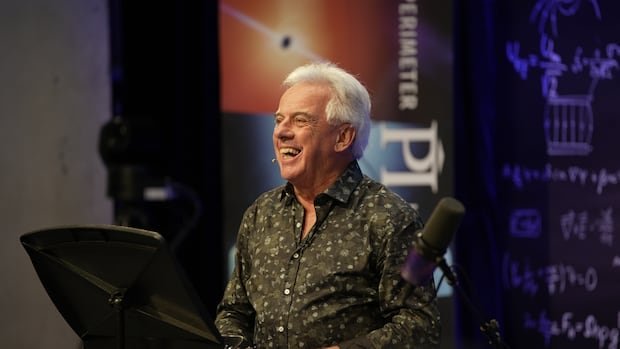The renowned program, Quirks & Quarks, commemorates its 50th anniversary this week, reflecting on five decades of scientific exploration and peering into the future.
In 1975, as David Suzuki launched the inaugural episode of Quirks & Quarks, the aftermath of the 1973 energy crisis loomed over North America. The abrupt halt in oil supplies from the Middle East triggered a surge in gasoline prices, leading to fuel shortages and long queues at gas stations.
During this period, the focus shifted towards fuel efficiency and energy conservation, prompting scientists and engineers to maximize limited oil resources and explore alternative energy options. Consumers transitioned from gas-guzzling American cars to more efficient models from Japan and Europe. The automotive industry followed suit by introducing smaller, aerodynamic vehicles powered by compact engines to enhance fuel mileage.
Significant investments were made in renewable energy sources, resulting in advancements such as clean hydrogen fuel, enhanced solar panels, wind turbines, geothermal energy, and biofuels. Meanwhile, efforts were made to enhance energy efficiency in homes through insulation, heat pumps, and high-efficiency furnaces, reducing heating costs.
Industries faced increased scrutiny over air and water pollution, leading to the adoption of catalytic converters in automobiles to curb emissions and stricter regulations on industrial waste disposal. This era marked a pivotal shift towards environmental stewardship, influenced by iconic photographs of Earth from space and environmental advocacy, exemplified by Rachel Carson’s seminal work, Silent Spring.
Simultaneously, the 1970s witnessed the rise of environmental awareness, with a growing emphasis on carbon emissions and the promotion of green energy solutions. The era also saw the advent of personal computers, revolutionizing communication and connectivity on a global scale.
In the medical realm, the Human Genome Project in the 1990s revolutionized genetic research, deepening our understanding of human biology and evolution. As Quirks & Quarks completes five decades, it reflects on the remarkable progress achieved in health, technology, and scientific knowledge.
While advancements have propelled humanity’s capabilities, concerns have been raised about the environmental toll of progress. Despite cleaner and more efficient technologies, the surge in vehicle sizes has offset emission reductions. The planet faces increasing ecological pressures, with species decline, forest fires, water scarcity, and extreme weather events becoming more prevalent.
Despite global efforts to combat climate change, challenges persist, with economic interests often overshadowing environmental priorities. Scientists warn of the lasting impact of human activities on the planet, coining the term “the Anthropocene” to signify our enduring imprint on Earth’s geological record.
Amidst these challenges, opportunities for sustainable solutions abound. Technologies developed in response to past energy crises now offer viable alternatives for power generation, emphasizing solar, wind, geothermal, and nuclear energy sources. However, distinguishing between legitimate scientific findings and pseudoscience remains crucial in addressing critical issues like climate change, energy security, and environmental sustainability.
As Quirks & Quarks continues its legacy of promoting science literacy, the program stands as a beacon of knowledge and insight for a scientifically informed society.

